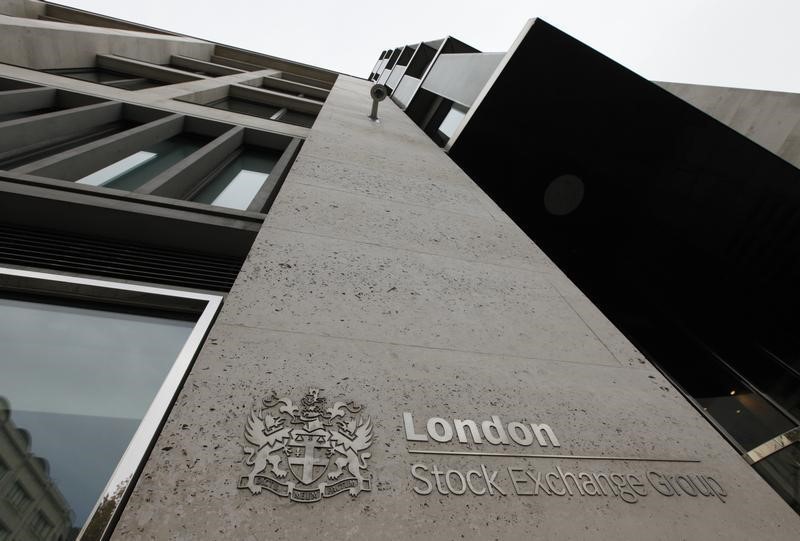Proactive Investors -
- FTSE 100 gains 15 points at 7,640
- Ocado (LON:OCDO) posts rare profit, but M&S dispute emerges
- British Airways (LON:ICAG) owner IAG profits double
The FTSE 100 is striding mostly sideways, if not quite getting into the leap-day spirit.
It is one of the European indices in positive territory, but as has been typical of late not the best performer, which today is Germany's DAX, up 75 points or 0.43%.
Italy's MIB is up 0.3%, France's CAC 40 is just above flat, while Spain's IBEX is down 0.1%
London's index is the "wallflower of the global equity market", so poetically expressed by analyst Kathleen Brooks at XTB.
Looking across Europe, she notes that the prospect of a delay to interest rate cuts has not tempered stock market performance this month, with the Eurostoxx index up 5.6% and has outperformed the S&P 500's' 4.6% gain and the Nasdaq's 5.17%.
"The FTSE 100 is virtually flat, as it becomes a wallflower in the global equity market, even BOE governor Andrew Bailey has been notably more dovish than some of his central banker peers."
Chinese shares have also been a big outperformer in February, she observes, with the CSI 300 rising nearly 9% this month, and the Hang Seng up 6.51%.
"China’s stock market recovery has been a reaction to some policy responses from Beijing in an effort to shore up the stock market as the economy continues to underperform."
Looking ahead, the National People’s Congress on March 5th "could keep upward pressure on Chinese equities, as analysts expect some economic measures to be announced that will hopefully boost China’s sluggish economy", Brooks concludes.
Mortgages data 'suggests UK recession over soon'
Commenting on the BoE mortgage approvals data, Alice Haine, analyst at Bestinvest, noted that the rise in UK mortgage approvals – an indicator of future borrowing – was the fourth consecutive month.
January saw declining mortgage rates lure more buyers back to the market as affordability levels improved, though net mortgage lending dropped as repayments are generally bigger than for new mortgages issued as people strived to pay back their debt amid high borrowing costs, Haine said.
"While borrowing costs remain high, with interest rates still on pause at a 16-year peak of 5.25%, signs of a slightly improving outlook for borrowers can be found in the effective rate on newly drawn mortgages, which dropped for the second consecutive month, falling 9 basis points to 5.19%," she said.
Emma Cox, managing director of real estate at lender Shawbrook, said January’s rise approvals "reflects the increasing confidence returning to the market", but she noted that after drops last month mortgage rates "are beginning to creep back up and cuts to interest rates may not materialise as soon as previously predicted".
Ashley Webb at Capital Economics said the increase in consumer credit was stronger than expected, at £1.9 billion versus consensus at £1.6 billion, "but that probably reflects the recent volatility in real retail sales, which rebounded by 3.4% m/m in January, rather than an improvement in underlying demand for unsecured borrowing".
He said the rise in cash deposits in households bank accounts of £6.8 billion in January was the largest monthly increase since September 2022, up for a second month in a row.
It may reflect the fact the rise in mortgage interest costs is slowing, he said, with the average rate on all mortgages only increasing by 5 basis points, from 3.36% to 3.41%.
"Overall, real GDP may still contract in Q1 but the signs of life in the housing market suggest that the 'recession' will be over soon, if it’s not already," said Webb.
Mortgage approvals on the up
Bank of England statistics this morning show net mortgage approvals for house purchases rose to 55,200 in January from 51,500 in December.
Net approvals for remortgaging remained stable at 30,900 in January.
Individuals repaid a net £1.1 billion of mortgage debt in January, compared to £0.9 billion in December.
The ‘effective’ interest rate, meaning the actual interest paid by homeowners, on newly drawn mortgages fell by 9 basis points, to 5.19% in January. The rate on the outstanding stock of mortgages increased by 5 basis points, from 3.36% in December to 3.41% in January.
Net consumer credit borrowing rose to £1.9 billion in January, from £1.3 billion in December, mainly driven by higher borrowing through credit cards, which rose to £0.9 billion in January from £0.3 billion in December.
Net borrowing through other forms of consumer credit (such as car dealership finance and personal loans) also increased slightly, from £0.9 billion in December to £1.0 billion in January.
